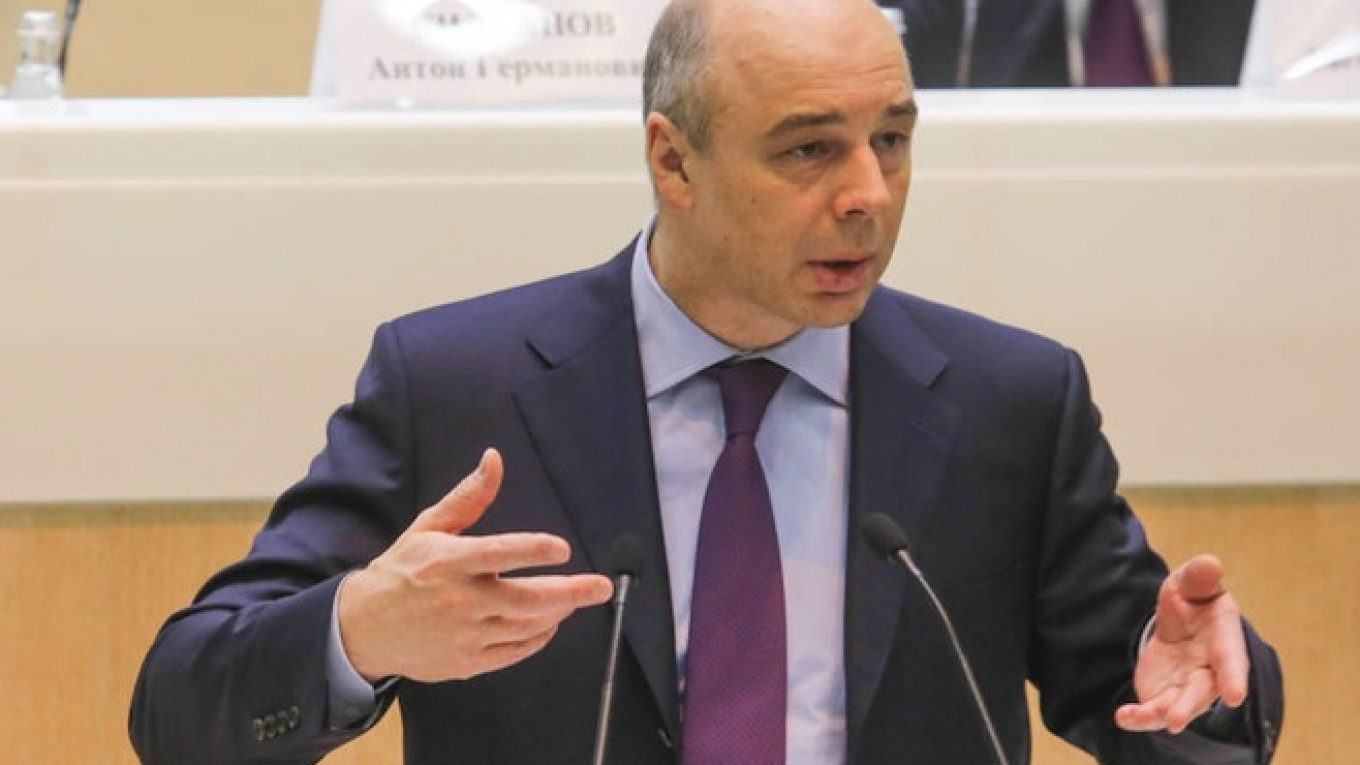With sanctions, oil price falls and the ruble devaluation making Russia's official growth forecasts look increasingly overconfident, the Finance Ministry will draw up contingency measures to shave 10 percent off state spending in 2016 and 2017, business daily Vedomosti reported, citing undisclosed government sources.
Such a drastic reduction in spending could save the government about 1.5 trillion rubles ($36 billion) in planned expenses, the newspaper said.
Spending for next year would not be affected, it added, as the Finance Ministry has asked for permission to use up to 500 billion rubles ($12 billion) from Russia's Reserve Fund to fill holes in the budget if needed.
Russia's lower house of parliament on Friday passed in its first reading a budget for 2015-17, which sparked controversy with its optimistic forecast that oil prices will return to at least $100 per barrel, Western sanctions will gradually ease and Russia's economic growth will get back on track.
The budget predicts a return to 3 percent growth in 2016 from 0.5 percent this year. But the price of oil, Russia's key export, has slumped by a quarter since July, and the Russian currency has fallen by 20 percent over the same period, leading U.S. investment bank JPMorgan to predict on Monday that Russia will see negative growth of 0.8 percent next year. ?
Recognizing the risks, Finance Minister Anton Siluanov has repeatedly said the government will be hard put to meet its obligations under the budget, which he described on Friday as having been drafted "in a different economic reality," state news agency RIA Novosti reported.
Siluanov added that the government needs a backup budget dictating how to cut spending in the event that Western sanctions, economic stagnation and low oil prices continue.
A Message from The Moscow Times:
Dear readers,
We are facing unprecedented challenges. Russia's Prosecutor General's Office has designated The Moscow Times as an "undesirable" organization, criminalizing our work and putting our staff at risk of prosecution. This follows our earlier unjust labeling as a "foreign agent."
These actions are direct attempts to silence independent journalism in Russia. The authorities claim our work "discredits the decisions of the Russian leadership." We see things differently: we strive to provide accurate, unbiased reporting on Russia.
We, the journalists of The Moscow Times, refuse to be silenced. But to continue our work, we need your help.
Your support, no matter how small, makes a world of difference. If you can, please support us monthly starting from just $2. It's quick to set up, and every contribution makes a significant impact.
By supporting The Moscow Times, you're defending open, independent journalism in the face of repression. Thank you for standing with us.
Remind me later.


